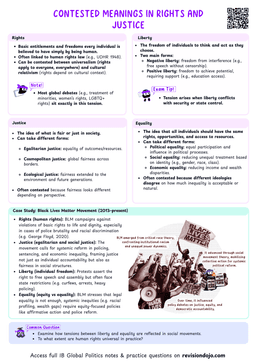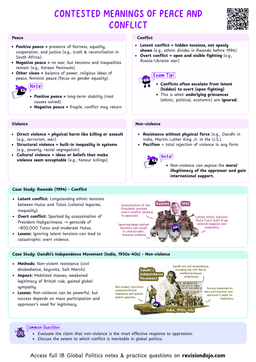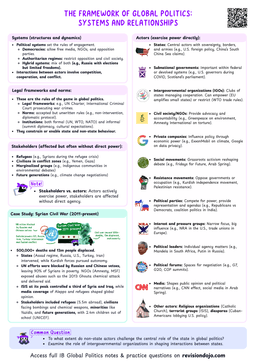Codification of Rights and Justice
- Codification refers to the process of formally recording rights and justice principles in legal documents.
- This provides a clear framework for protection and enforcement.
International Level
1. Universal Declaration of Human Rights (UDHR) (1948)
- A foundational document that outlines universal human rights.
- Although not legally binding, it influences international law and norms.
- The UDHR was adopted by the United Nations General Assembly in 1948, reflecting a global consensus on fundamental human rights after the atrocities of World War II.
2. International Covenants
- International Covenant on Civil and Political Rights (ICCPR) (1966)
- International Covenant on Economic, Social and Cultural Rights (ICESCR) (1966)
- These covenants, along with the UDHR, form the International Bill of Human Rights.
- The UN encourages states to turn human rights into enforceable, binding laws.
- Two types of state support:
- Signing – Symbolic support, state agrees in principle but not legally bound.
- Ratifying – State commits to the treaty and can face consequences if it violates it.
- Two types of state support:
- Major UN Human Rights Treaties: Summary
- ICERD (1965): Bans racial discrimination; widely accepted by all Security Council members.
- ICCPR (1966): Covers civil and political rights (e.g., free speech, legal rights); not ratified by China, Malaysia, Saudi Arabia, Singapore.
- ICESCR (1966): Focuses on economic, social & cultural rights (e.g., education, fair work); US has not ratified.
- CEDAW (1979): Protects women’s rights across all areas; US has not ratified.
- UNCAT (1984): Prohibits torture and inhumane treatment; widely accepted.
- CRC (1989): Defines children’s rights and protections under age 18; US and Somalia have not ratified.
- CMW (1990): Protects migrant workers; not widely accepted, no Security Council ratification.
- Rome Statute (ICC, 2002): Establishes International Criminal Court for war crimes/genocide; US and China have not ratified.
- UNDRIP (2007): Focuses on indigenous peoples’ rights; initially rejected by several states (e.g., US, Canada), later endorsed.
Regional Instruments
- European Convention on Human Rights (ECHR)
- African Charter on Human and Peoples' Rights
- American Convention on Human Rights
- These regional instruments reflect cultural and historical contexts, adapting universal principles to specific regions.
National Level
1. Constitutions
- Many countries enshrine human rights in their constitutions, providing a legal basis for protection.
- These constitutional protections often serve as a benchmark for courts when interpreting laws and defending individual freedoms.
- South Africa’s post-apartheid constitution (1996) includes a Bill of Rights that explicitly guarantees civil, political, and socio-economic rights.
2. Legislation
- Specific laws are enacted to protect rights, such as the Equality Act in the United Kingdom.
- Such laws help ensure accountability by making discrimination or rights violations legally punishable through national courts.
The Human Rights Act 1998 (UK)
- What it does: Incorporates the European Convention on Human Rights (ECHR) into UK law.
- Key rights protected:
- Right to life
- Freedom from torture
- Right to a fair trial
- Freedom of expression
- Right to privacy
- Impact: Allows individuals to bring human rights cases before UK courts without needing to go to the European Court of Human Rights in Strasbourg.
- When analyzing the codification of rights, consider how international, regional, and national frameworks interact.
- This multi-layered approach helps ensure comprehensive protection.
Protection of Rights and Justice
Protection
Protection involves ensuring that codified rights are respected and enforced.
1. International Mechanisms
- United Nations Human Rights Council (UNHRC)
- Monitors human rights globally and conducts the Universal Periodic Review (UPR) of member states.
- International Criminal Court (ICC)
- Prosecutes individuals for crimes such as genocide, war crimes, and crimes against humanity.
- The ICC's prosecution of leaders like Sudan's Omar al-Bashir for alleged war crimes in Darfur demonstrates its role in enforcing international justice.
2. Regional Courts
- European Court of Human Rights (ECHR)
- Inter-American Court of Human Rights
- These courts provide legal recourse for individuals whose rights have been violated.
3. National Mechanisms
- Judicial Systems
- Courts interpret and enforce constitutional and legal protections of rights.
- Human Rights Commissions
- Independent bodies that investigate violations and promote awareness.
- The European Court of Human Rights (ECHR) is a regional judicial body that enforces the European Convention on Human Rights.
- Individuals from member states can bring cases against their governments for violating their rights. Its rulings are legally binding, and all 46 Council of Europe states must comply.
- The South African Human Rights Commission plays a crucial role in addressing issues like discrimination and access to basic services.
Monitoring of Rights and Justice
Monitoring
Monitoring involves tracking and evaluating the implementation of rights and justice frameworks.
1. International Monitoring
- United Nations Treaty Bodies
- Committees that oversee the implementation of specific treaties, such as the Committee on the Elimination of Discrimination against Women (CEDAW).
- Non-Governmental Organizations (NGOs)
- Organizations like Amnesty International and Human Rights Watch play a vital role in monitoring and reporting violations.
- NGOs often provide independent assessments that complement official reports, highlighting areas where governments may fall short.
2. National Monitoring
- Ombudsman Offices
- Independent agencies that address complaints about government actions and protect citizens' rights.
- Civil Society
- Activists and community organizations monitor and advocate for rights at the grassroots level.
- When evaluating monitoring mechanisms, consider their independence, effectiveness, and ability to hold violators accountable.
UN Human Rights Violation Complaints
- Who can complain?
- Individuals (or representatives) can file a detailed complaint after failing to get justice via national courts.
- States can file complaints against other states for human rights violations.
- Other actors (e.g. NGOs) can submit evidence of systematic abuse to relevant UN committees.
- What happens next?
- The committee alerts the accused state.
- A UN inquiry may follow (including an official visit).
- Recommendations are issued to address the violation.
- The state must respond with evidence within ~6 months.
- The process is confidential and depends on the state’s cooperation.
Toonen v. Australia (1994)
- Background: Nicholas Toonen, an Australian citizen, challenged Tasmania's laws criminalizing consensual same-sex relations between adult men, arguing they violated his rights under the International Covenant on Civil and Political Rights (ICCPR).
- UN Involvement: The United Nations Human Rights Committee found that these laws breached Toonen's right to privacy and non-discrimination as protected by the ICCPR.
- Outcome: Following the Committee's decision, the Australian federal government enacted legislation overriding Tasmania's laws, leading to the decriminalization of same-sex relations in the state.
- Significance: This landmark case set a precedent for interpreting sexual orientation as a protected status under international human rights law.
Challenges in Codification, Protection, and Monitoring
- Sovereignty vs. International Norms
- States may resist international intervention, citing sovereignty.
- Cultural Relativism
- Debates arise over whether universal rights conflict with cultural practices.
- Enforcement Gaps
- Lack of resources or political will can hinder effective enforcement.
- The practice of female genital mutilation (FGM) is defended by some as a cultural tradition, but it is widely condemned as a human rights violation.
- Identify three key international instruments that codify human rights.
- Explain how national and international mechanisms work together to protect and monitor rights.
- Reflect on the challenges of enforcing human rights in different cultural and political contexts.


